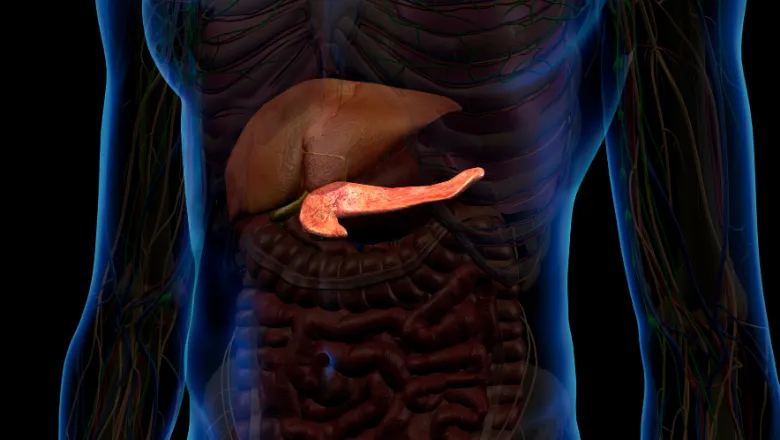A collaboration between King's and Queen Mary University of London identified amoeboid cells driving the spread of pancreatic cancer for the first time, potentially providing a new approach for treatments.

A new collaborative study between King's and Queen Mary University of London (QMUL) has identified cells that drive the spread of pancreatic cancer and discovered a weakness in these cells that could be targeted using existing drugs. This offers a promising new approach for treating pancreatic cancer.
Published in Science Advances, the research found that many patients' pancreatic cancer contains amoeboid cells. These are aggressive, invasive and fast-moving cells that weaken the immune system. These cells have previously been linked with poor survival rates in other cancers, but this is the first time that they have been found in pancreatic cancer.
Crucially, the new study discovered amoeboid cells in pancreatic cancer produce high levels of the molecule CD73, which drives their ability to spread and weakens the immune system. When blocking this molecule, the researchers reduced the spread of cancer to the liver and decreased the number of immune cells that supported the tumour.
The research looked at mice given anti-CD73 treatment over the short term (three weeks) and long term where clinical endpoints were met (when an outcome that represents direct clinical benefit was achieved, such as survival, decreased pain, or the absence of disease). In the long-term group, anti-CD73 treatment reduced the incidence of cancerous tumours that spread to the liver from 66.6 per cent to 36.4%.
While the results need to be replicated in humans, they are very promising in highlighting a potential way of treating the spread of one of the most aggressive and poorly survived cancers where current treatments are not working well. To improve treatments, we urgently need to understand the disease better."
Professor Victoria Sanz-Moreno, previously based at King's Randall centre and current Professor of Cancer Cell Biology at Queen Mary University of London
While further tests involving humans would need to confirm these conclusions, the study suggests that blocking CD73 could be a promising approach for treating pancreatic cancer, especially as drugs blocking CD73 are already being tested in clinical trials for various types of cancer.
Amoeboid cells were present in both late and early-stage pancreatic cancer. Therefore, blocking CD73 could open a new avenue for treating early-stage pancreatic cancer, reducing the aggressive nature of these cells and the damage they cause in the body.
We started this project because very little is known about how pancreatic cancer spreads, and we wanted to understand more about how cell morphology related to spreading behaviour. The Wells laboratory are delighted to be a part of important work that has pushed the boundaries of our understanding of pancreatic cancer spread and how we might prevent it."
Professor Claire Wells, Professor in Cancer Cell Biology







